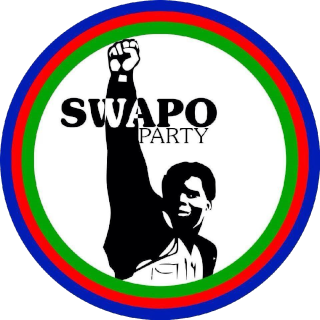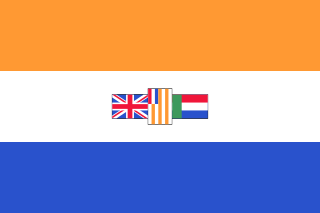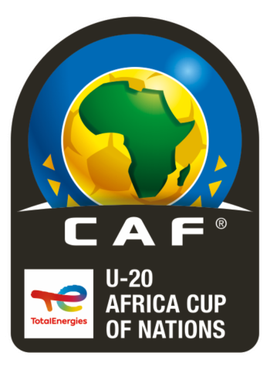Related Research Articles

South West Africa, renamed to Namibia from 12 June 1968 was a territory under South African administration from 1915 to 1990, after which it became modern-day Namibia. It bordered Angola, Botswana, South Africa, and Zambia. During its administration, South Africa applied its own apartheid system in the territory of South West Africa.

The South West Africa People's Organisation, officially known as the SWAPO Party of Namibia, is a political party and former independence movement in Namibia. Founded in 1960, it has been the governing party in Namibia since the country achieved independence in 1990. The party continues to be dominated in number and influence by the Ovambo ethnic group.

Samuel Shafiishuna Daniel Nujoma, is a Namibian revolutionary, anti-apartheid activist and politician who served three terms as the first President of Namibia, from 1990 to 2005. Nujoma was a founding member and the first president of the South West Africa People's Organization (SWAPO) in 1960. Prior to 1960, SWAPO was known as the Ovambo People's Organisation (OPO). He played an important role as leader of the national liberation movement in campaigning for Namibia's political independence from South African rule. He established the People's Liberation Army of Namibia (PLAN) in 1962 and launched a guerrilla war against the apartheid government of South Africa in August 1966 at Omugulugwombashe, beginning after the United Nations withdrew the mandate for South Africa to govern the territory. Nujoma led SWAPO during the lengthy Namibian War of Independence, which lasted from 1966 to 1989.

The Southern African Customs Union (SACU) is a customs union among five countries of Southern Africa: Botswana, Eswatini, Lesotho, Namibia and South Africa. Its headquarters are in the Namibian capital, Windhoek. It was established in 1910.

The Popular Democratic Movement (PDM), formerly the Democratic Turnhalle Alliance (DTA), is an amalgamation of political parties in Namibia, registered as one singular party for representation purposes. In coalition with the United Democratic Front, it formed the official opposition in Parliament until the parliamentary elections in 2009. The party currently holds 16 seats in the Namibian National Assembly and one seat in the Namibian National Council and is the official opposition. McHenry Venaani is president of the PDM.

Hereroland was a bantustan and later a non-geographic ethnic-based second-tier authority, the Representative Authority of the Hereros, in South West Africa, intended by the apartheid-era government to be a self-governing homeland for the Herero people.
During part of the South African apartheid administration in South West Africa, when Hereroland was a bantustan, a political representative was appointed by the South African Administration. At first, this position was given to the respective Paramount Chief of the Herero people until in 1980, political representation was decoupled from chieftaincy. The position of the representative of Hereroland was abolished in May 1989 as part of the transition to Namibian independence which was declared in March 1990.

Damaraland was a name given to the north-central part of South West Africa, which later became Namibia, inhabited by the Damaras. It was bordered roughly by Ovamboland in the north, the Namib Desert in the west, the Kalahari Desert in the east, and the Windhoek region in the south.

Tswanaland was a bantustan and then later a non-geographic ethnic-based second-tier authority, the Representative Authority of the Tswanas, in South West Africa, in the far central eastern area of the territory around the village of Aminuis. It was intended by the apartheid government to be a self-governing homeland for the Tswana people.

Kavangoland was a bantustan and then later a non-geographic ethnic-based second-tier authority, the Representative Authority of the Kavangos, in South West Africa, intended by the apartheid government to be a self-governing homeland for the Kavango people.

East Caprivi or Itenge was a bantustan and later a non-geographic ethnic-based second-tier authority, the Representative Authority of the Caprivis in South West Africa, intended by the apartheid government to be a self-governing homeland for the Masubiya people.

The South West Africa Territorial Force (SWATF) was an auxiliary arm of the South African Defence Force (SADF) and comprised the armed forces of South West Africa from 1977 to 1989. It emerged as a product of South Africa's political control of the territory which was granted to the former as a League of Nations mandate following World War I.

Hage Gottfried Geingob was a Namibian politician who served as the third president of Namibia from 2015 until his death in February 2024. Geingob was the first Prime Minister of Namibia from 1990 to 2002, and served as prime minister again from 2012 to 2015. Between 2008 and 2012 Geingob served as Minister of Trade and Industry.

The Transitional Government of National Unity (TGNU), was an interim government for South West Africa (Namibia) between June 1985 to February 1989.

The Turnhalle Constitutional Conference was a conference held in Windhoek between 1975 and 1977, tasked with the development of a constitution for a self-governed South West Africa (Namibia) under South African control. Sponsored by the South African government, the Turnhalle Conference laid the framework for the government of South West Africa from 1977 to independence in 1989.
Nikolaus Onverwag 'Niko' Bessinger was a Namibian politician and independence activist.
Erastus Tjejamba was the Chairman of the Executive Committee of Hereroland from September 1984 to August 1987 and from October 1987 to February 1988. In this position he was the highest representative of his bantustan to the South African apartheid administration in South-West Africa.

The U-20 Africa Cup of Nations, known for short as the U-20 AFCON and for sponsorship purposes as TotalEnergies U-20 Africa Cup of Nations, previously known as the African Youth Championship and the African U-20 Championship, is the biennial international youth football tournament organized by the Confederation of African Football (CAF) for its nations consisting of players under the age of 20. It serves as the African qualification tournament for the FIFA U-20 World Cup.

36 Battalion was a light infantry battalion in the South African Army and in later years became part of the SWATF.

Academic Freedom and Apartheid: The Story of the World Archaeological Congress by Peter Ucko is a personal account of the 1986 World Archaeological Congress (WAC), originally intended to be the eleventh congress of the International Union for Prehistoric and Protohistoric Sciences (IUPPS). Ucko, who organised the Congress, presents a linear account of how the Congress came to ban participation by South Africans and Namibians as part of the Academic boycott of South Africa, and how this led to it splitting from the IUPPS. It quotes extensively from sources such as correspondence, minutes, newspapers, WAC publicity, and others' accounts of the WAC.
References
- ↑ Namibian Homelands World Statesmen.org, accessed 15 June 2011